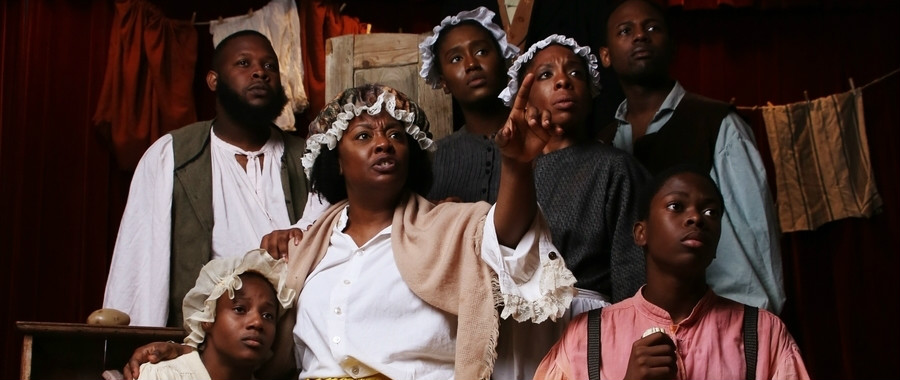Throughout history, music has emerged as a formidable force for change, galvanizing hearts and minds to champion noble causes. In the context of the Bahá’í teachings, music transcends mere entertainment; it becomes a vital instrument for spiritual enlightenment and social transformation. Focusing on the profound themes of escaping slavery and raising consciousness, this discussion elucidates how musical expressions serve not only as a commemoration of those who suffered but also as a catalyst for inspiring action towards justice and equality.
To comprehend the interplay of music, spirituality, and social activism within Bahá’í ideals, it is essential first to examine the rich tapestry of musical history related to the abolition of slavery. The songs of resistance known colloquially as spirituals emerged in the United States during the 19th century, rooted in the African American experience of enslavement. These lyrical compositions were more than mere melodies; they encapsulated the agony and hope of a people. Such expressions not only served as a means of covert communication among the enslaved but also solidified a sense of community and collective identity. In the Bahá’í perspective, these spirituals embody the principle that art must serve humanity, elucidating the intrinsic link between creativity and social responsibility.
As we delve deeper into this musical phenomenon, it is vital to explore the dual role of music in both documenting historical injustices and fostering empathy. The Bahá’í teachings advocate for the recognition of the oneness of humanity, a principle resonantly echoed in the emotional depth of songs that recount the struggles against oppression. Musical narratives that narrate experiences of fleeing bondage serve to illuminate the moral imperative of elevating consciousness. They act as a poignant reminder that the quest for freedom is a universal endeavor, igniting a communal understanding that is indispensable in our collective pursuit of justice.
Furthermore, the themes articulated in these musical compositions are replete with lessons on perseverance and resilience. The Bahá’í Faith emphasizes that individual and collective actions can reverberate through time, inspiring future generations to continue the quest for equity and compassion. Hence, songs that celebrate overcoming adversity, such as ‘Swing Low, Sweet Chariot’ or ‘Go Down Moses,’ encapsulate the ethos of rising against oppression. They echo the Bahá’í commitment to empowering individuals to contribute positively to society, embodying the belief that music can implant seeds of change in the fabric of communal consciousness.
Moreover, the transformative power of music lies in its capacity to galvanize action, acting as a rallying point for collective engagement in societal issues. Within the Bahá’í community, artistic expressions serve as an avenue to inspire action in various arenas, including social justice, environmental stewardship, and international peace. When analyzing the modern relevance of music in movements for justice, one can observe how artists often draw upon the legacy of musical traditions that arose from struggles against slavery. By bridging the historical with the contemporary, these creators evoke a sense of duty among listeners to engage with pressing social issues today.
Critically, the act of engagement demands not only awareness but also sensitivity to the diverse narratives that constitute the tapestry of human experience. The Bahá’í teachings advocate for a consciousness that is illuminated by compassion and understanding, urging individuals to transcend superficial differences and embrace the deeper shared values of humanity. Music serves as a vehicle for this empathetic connection, enabling listeners to perceive the realities of others and galvanizing them into meaningful action. The result is a rich dialogue that fosters solidarity across disparate demographics; through song, individuals confront uncomfortable truths about their societal contexts, thereby refining their capacity to affect change.
As we reflect on the historical implications of music in the abolitionist movement, it becomes apparent that musical forms—whether they manifest as protest songs, hymns, or contemporary anthems—harness a unique power to convey messages that resonate across time and space. The Bahá’í teachings support the notion that the arts, including music, propound ideals that can inspire significant societal shifts. Like a unifying melody that reverberates through an audience, the message of liberation and equality seeks to empower all people, transcending barriers of language and geography.
In addition to fostering a collective consciousness, musical inspiration serves as a potent mechanism for healing and reconciliation. The storytelling nature of music enables the articulation of pains and injustices faced by marginalized populations, allowing for an exploration of the historical contexts of trauma. Bahá’í teachings encourage processes of collective healing, emphasizing forgiveness, understanding, and unity as prerequisites for building a just society. As artists engage with the narratives of the past, they facilitate an opportunity for listeners to confront these legacies with humility and empathy, thus paving the way for genuine reconciliation.
Finally, contemporary artists continue to draw inspiration from the historical struggles against slavery while weaving in modern themes of social justice. The Bahá’í Faith’s commitment to a world harmonious and just is mirrored in the work of musicians who seek to address contemporary issues such as racial inequality, economic disparities, and environmental degradation. Through their art, they urge listeners to reflect on their responsibilities as global citizens, calling for active participation in the noble endeavor of uplifting human dignity.
In conclusion, musical inspiration deeply intertwined with themes of escaping slavery serves as a vital conduit for raising consciousness and inspiring action. The Bahá’í perspective reinforces the belief that music acts as a unifying force, compelling individuals to engage with one another across divides and inspiring collective action towards a more just world. By recognizing the historical significance of music in social movements and celebrating its potential for change, we honor those who have come before us, and we reaffirm our commitment to forging a future characterized by equity, compassion, and love.
